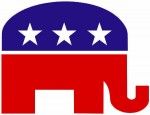Being Right: Patting Down Freedom

For most reasonable people, it is abundantly clear that the shooting in Tucson had nothing to do with a lack of political civility. However, when we are confronted with death and tragedy, introspection is both natural and reasonable.
Given the nature of the event and the backgrounds of the victims, political introspection was also inevitable.
Yet some vocal elements of left and right would rather politicize a tragedy than move forward. Some on the left tell us that it is inappropriate to use words like “target,” or to use maps with crosshairs, despite the fact that words and symbols with martial connotations have always been part of political lexicon. The next thing you know words like “defeat” and “beat” will be in their crosshairs for being too violent. Of course, there are also many on the right who cannot see that mentioning “second amendment remedies” and having campaign events where you get to shoot M-16s are not appropriate political discourse.
Both defending the indefensible and targeting harmless verbs and symbols are wastes of our time. These actions take away from the real, meaningful lessons and stories of the tragedy.
One lesson Tea Partiers must draw is that the language of militancy is self-defeating if they desire to advance their political goals especially given the current climate. But even before the shooting happened, did it surprise anyone that a militant candidate lost, while candidates who were conservative but not militant won?
Besides, political expediency, civility and decency are the moral choices. Judge John Roll, one of the six people killed in Tucson, exemplified these traits. When the security video was finally examined several days ago, it showed the judge using his body as a shield, protecting Congresswoman Giffords’ aide Ron Barber who would survive as a result of the judge’s selflessness.
Judge John Roll was a devout Christian who went to church every day. He was recommended to the bench by John McCain and appointed to the bench by President George H.W. Bush. At first glance, one might be tempted to typecast him as a stereotypical member of the Christian right with all the pejoratives associated with that term, but you could not be more wrong.
According to everyone who ever worked with him, he was always tough but fair, disagreements were never personal, and he was kind to a fault. When one young lawyer before him in court repeatedly made the wrong type of legal objection, he guided her into the right one without embarrassing her. One of his former law clerks said, “It’s hard to describe the virtues of Chief Judge John Roll without making him sound too good to be true. I think that’s because he really was as good as all of us wish we could be, but know we so often aren’t.”
Judge Roll was also the subject of controversy when he made a key ruling allowing a lawsuit filed by illegal aliens against a rancher to continue to a jury trial. Subsequently, he faced death threats, two hundred in one single afternoon, which were serious enough that it was deemed necessary for U.S. Marshals to protect him and his family for a month. He made a ruling that would earn him the scorn of some Arizona conservatives because it was consistent with his moral principles and the law which he had sworn to uphold. Not coincidentally, his hero was Saint Thomas More, patron saint of lawyers and politicians.
It took the tragedy in Tucson for Americans to learn about his court and character which his final moments exemplified. He was a man and a judge that young Christina Green and America’s children could be proud of.




